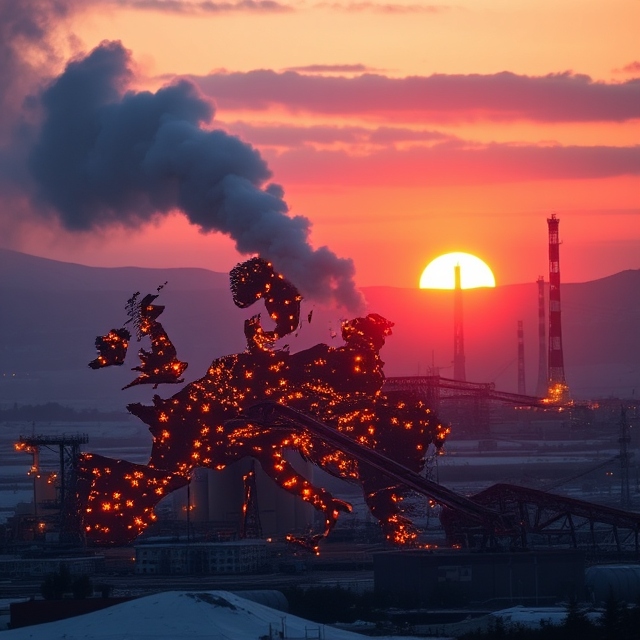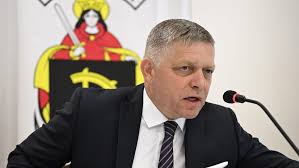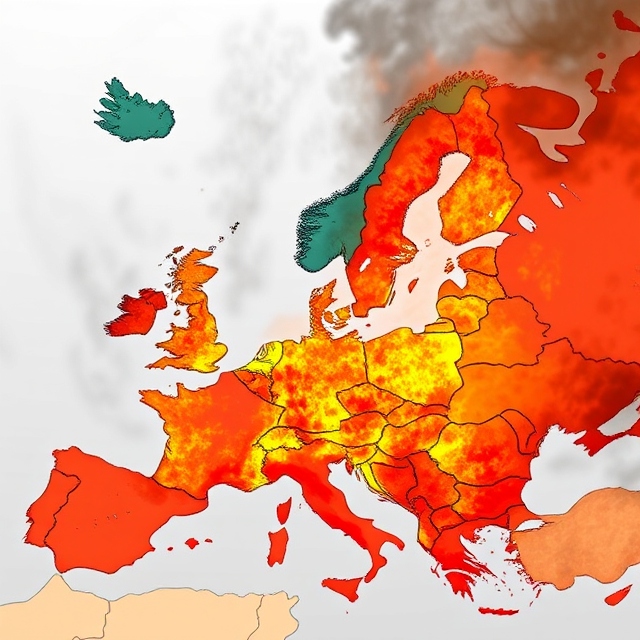
Termination of Gas Transit: Ukraine’s decision to end the gas transit agreement with Russia from January 2025 will significantly affect European energy security and Ukraine’s revenue stream.
Eastern Europe’s Concerns: Countries like Slovakia and Hungary, heavily reliant on Russian energy, face economic challenges, including higher costs and inflation, as a result of this move.
Impact on Europe: Europe’s shift from Russian energy has increased costs and economic pressure, benefiting the U.S. while creating economic stagnation, especially in key economies like Germany and France.
The Ukrainian government has discontinued its agreement with Russia to allow Russian gas to transit through Ukraine to the European Union. This new arrangement will come into effect on January 1, 2025. This marks a significant moment for European energy security, as the region has historically relied heavily on Russian gas. However, it is also a financial loss for Ukraine, as the country earns $700–800 million annually from allowing Russian gas to pass through its territory. This loss of revenue for Ukraine is significant, especially during a time of war. Ukraine’s primary economic sectors, such as agriculture—long regarded as the “breadbasket of the world”—have been severely impacted by the conflict. The war has disrupted Ukraine’s ability to sustain its traditional economic activities.

Source: BBC
One of Ukraine’s major sources of income was the transit fees earned from allowing Russian gas to pass through its territory. Under its previous agreement with Russia, Ukraine was profiting significantly. While Ukraine may view the termination of this agreement as a geopolitical victory, it poses a major geo-economic challenge. By ending one of its key revenue streams, Ukraine has undermined a critical source of wealth, leaving its economy even more vulnerable in the face of ongoing challenges.

As soon as this decision was made by key officials, it was not well received by Eastern European countries. Slovakia, under Prime Minister Robert Fico, has been critical of Ukraine. Fico warned that this decision might create a difficult situation for both Slovakia and Ukraine. He also claimed that Ukraine allegedly offered him a bribe of $500 million in exchange for allowing Ukraine to become a NATO member. It is important to note that Slovakia is a member of both the European Union and NATO but remains opposed to Ukraine’s inclusion, considering it not suitable for membership in these associations. Similarly, other countries like Hungary and some Eastern European nations, which are heavily dependent on Ukraine, have expressed concerns. Notably, the Sudzha pipeline from Russia to Slovakia and the Druzhba pipeline, which connects Russian energy to Poland, Slovakia, and Hungary, also pass through Ukraine.
Ukraine’s decision not to allow Russian gas to pass through its territory is an economic loss for Slovakia and Hungary. Both countries are already struggling with significant economic challenges, including high inflation. In Hungary, for instance, inflation is among the highest in Europe. These two nations have been heavily dependent on Russian energy due to its affordability and convenience.
If Ukraine stops the transit of Russian gas, it will pose a serious economic concern for Slovakia and Hungary. Both countries would face higher energy costs and the challenge of finding alternative sources. Their economies are already stagnating due to high inflation, limited opportunities, and poor growth. They cannot afford to transition away from Russian energy easily.
This issue is particularly significant because both Hungary and Slovakia are led by nationalist governments. Prime Minister Robert Fico of Slovakia and Prime Minister Viktor Orbán of Hungary prioritize their countries’ interests over those of the European Union or Ukraine. Consequently, they have been strong advocates for maintaining access to Russian energy.
It’s not just the Eastern European countries that are dependent on Russia for energy; many Western European countries also rely heavily on it. For Europe, it has been said that without Russian energy, the European economy is nothing but flowers. For instance, Germany was able to become the economic powerhouse of Europe largely due to the cheaper energy it received from Russia. This was a major advantage for the European economy. However, due to the ongoing conflict with Russia, countries like Germany have been forced to move away from Russian energy.
Now, Europe is compelled to source the same energy at higher prices from countries like the United States and Qatar. Ironically, it is also purchasing Russian energy indirectly through third countries, such as India and Türkiye, which increases costs further. As a result, the overall European economy has stagnated. Investments in technology have slowed, and energy costs have created significant economic challenges. Many Western European economies are under pressure, with Germany now in a recession and France experiencing very poor growth.
Amid this situation, the major beneficiary has been the United States of America. The U.S. has always been cautious about the growing Russian presence in Europe. When Russian energy flowed into Europe, the U.S. feared that Europe’s dependency on Russia would provide Moscow with significant political leverage. For this reason, the U.S. has continuously urged Europe to move away from Russian energy entirely. For the U.S., this is an easier stance to take, as its dependency on Russian energy is only about 2%. However, for countries like Germany, where the dependency was officially more than 40%, it is far more challenging. Europe is now suffering the consequences of this shift. This context is why the Nord Stream 2 pipeline remains controversial, with claims that its sabotage might have been orchestrated by the U.S. Investigative journalist Seymour Hersh, in his report, suggested that the U.S., in coordination with Norway, was involved in sabotaging Nord Stream 2, and when we see the American interest in Europe, the claims do look plausible.

One of the biggest concerns for Europe right now is energy security. Europe needs to prioritize its own interests and find solutions to this crisis. As Hungarian Prime Minister Viktor Orbán stated, Europe has already “lost the war in Ukraine” because it is now grappling with an energy crisis that is a direct aftermath of the Ukrainian conflict.
At present, Europe is not only grappling with an energy crisis but also facing broader economic challenges. Even if Europe were to secure cheaper energy, it would not serve as a “guardian angel” to solve all its problems. What Europe truly needs is a comprehensive rejuvenation of its economic policies. Europe’s economic policies are more aligned with the interests of the United States than its own. This dependence on the U.S. has allowed American products to flood European markets, creating tough competition for domestic companies. To address this, Europe needs to adopt policies that foster economic independence—not only from the U.S. but also from China—while seeking alternative trading partners, such as India, which could offer mutually beneficial opportunities.
Another critical area of reform is Europe’s approach to its climate policies. Presently, the European Union’s strict regulations, such as prohibiting the use of chemical-based fertilizers, have significantly impacted its agricultural sector. This has caused substantial losses in Eastern Europe, where many economies rely heavily on primary sectors. Consequently, protests from farmers have erupted in countries like Moldova, France, and other parts of Western Europe.
To overcome these challenges, Europe needs economic policies that are fairer and more pragmatic—policies that balance environmental goals with economic realities and prioritize the interests of its member states over external dependencies.
References:
https://www.brookings.edu/articles/how-did-germany-fare-without-russian-gas/
https://newsukraine.rbc.ua/news/fico-claims-that-zelenskyy-allegedly-tried-1734753301.html
Satish Chogule is pursuing a Masters in Political Science at the University of Kolhapur, Maharashtra. He has contributed to several online platforms on international affairs and global developments. Views expressed are the author’s own.
